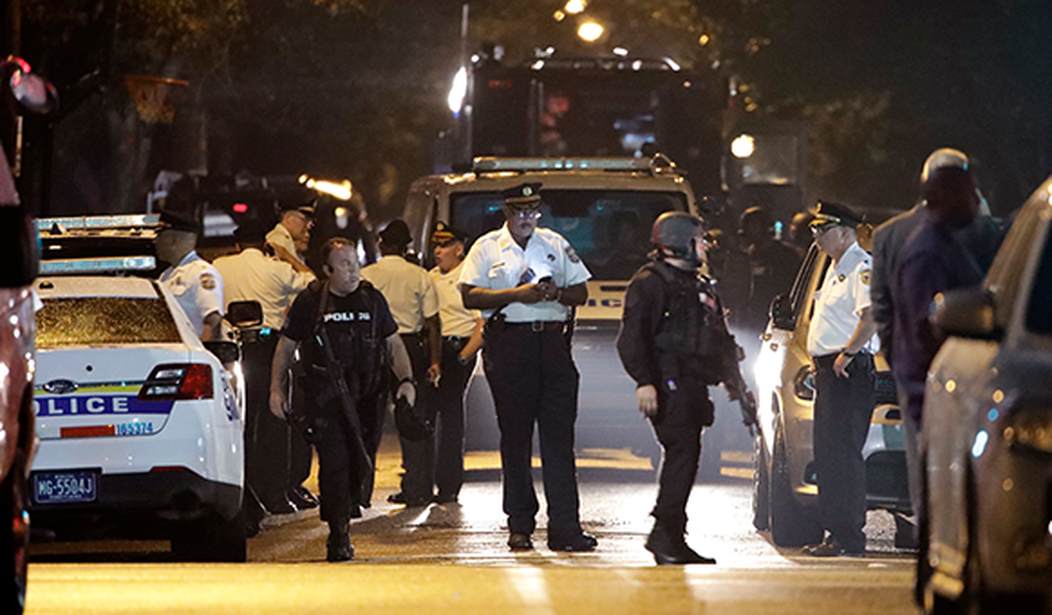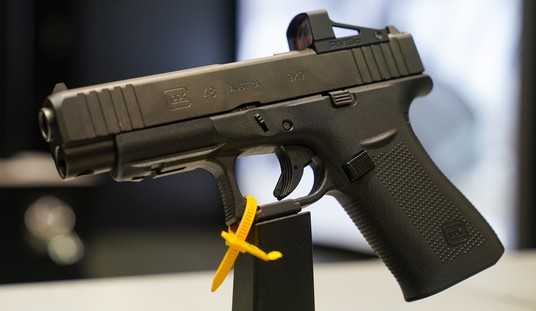Last year Philadelphia recorded 499 homicides, just one shy of its all-time record. Things aren’t any better in the City of Brotherly Love this year. In fact, at the moment, things are looking even worse.
The city recorded its 400th homicide on Saturday — the highest number at this time of year in more than a decade, according to police data.
The city reached the grim milestone despite a slight dip in shootings between mid-July and mid-August and much-touted state and city grants awarded to grassroots community organizations working to stop mostly young people from picking up guns in the first place.
Among Philadelphians doing violence prevention work — offering recreation space, giving away gun locks, connecting people to jobs — the fear is that the shootings in the city will only continue to rise before they decline. They say they could help be the “boots on the ground,” if only they got the help they need.
“[Officials] just need to put the people who are already on the streets, who already made the connection with people on the streets, and follow their lead,” said Rosalind Pichardo, a longtime Kensington activist, who is fighting the shootings and illegal drug crisis in her backyard.
“I mean, you can’t combat gun violence sitting behind a desk,” she said.
One could argue that you can’t combat violent crime with things like midnight basketball and gun locks either, but I do think there’s a role to be played by groups that try to prevent shootings before they happen. There’s also a role, however, for law enforcement, but city officials have largely rejected any strategy that involves focusing on the city’s most violent offenders and referring their cases to federal court, where they face longer sentences.
It’s not surprising, then, that Philadelphia District Attorney Larry Krasner, who’s come under heated criticism for a lack of felony prosecutions for both possessory gun offenses and violent crimes, is pointing the finger at police for the rising murder rate rather than addressing the falling numbers of felonies handled by his office.
“As for the criminal justice system, we must absolutely restructure institutions so that violence prevention is a true priority. That means taking advantage of forensic technologies to solve shootings that are not captured on camera or for which there are no available eyewitnesses; shoring up training and staffing for homicide and non-fatal shooting investigations, so that far more than 29% of homicides and 15% of non-fatal shootings do result in arrest, and therefore accountability within the criminal justice system; and greater accountability to the public, so that there is more trust among community members and potential witnesses in the police and criminal justice system.”
Krasner does have a point about the clearance rates, which contribute to a vicious cycle of violence. With 85% of non-fatal shootings and 71% of homicides going unsolved, it stands to reason that some criminally-minded individuals in Philadelphia correctly believe that they can literally get away with murder.
With city officials squabbling over the best way to address the shootings in Philadelphia, many residents are deciding to arm themselves in self-defense. One problem with that, however, is the fact that the Gun Permit Unit is still taking far too long to issue licenses to carry, despite a settlement in a lawsuit filed last year over the delays. Gun Owners of America filed a new lawsuit over those delays back in June, claiming that the city is still playing games with the 2A rights of residents even after that settlement had been reached.
Philadelphia’s latest scheme to avoid their statutory duties is to quickly “approve” applications, but then make applicants wait for months to take a photograph and pick-up their physical licenses. However, Pennsylvania law is crystal clear: Philadelphia shall issue LTCFs within 45 days. They cannot claim they have satisfied their responsibilities by merely approving the application, but then delaying the actual issuance of the LTCF.
“It’s amazing how much effort the City of Philadelphia puts into doing the wrong thing,” said Andrew Austin, representing GOA/GOF and the plaintiffs. “Almost every other county has figured this out and are managing to process a record number of applications within the 45 days the legislature provided. There’s just no excuse for their behavior.”
Philadelphia illegally shut down their Gun Permit Unit for a large portion of 2020, and between the pandemic and a nationwide spike in crime, there have been record gun sales and LTCF applications both in the City of Philadelphia and throughout Pennsylvania. However, in Philadelphia, a person cannot carry a firearm either openly or concealed without their LTCF. As a result, thousands of new gun owners in Philadelphia are being denied their right to bear arms to protect themselves and their families in frank violation of Pennsylvania law.
Philadelphia’s response included increasing the number of hours where the permit unit is open for appointments, but it’s unclear at this point just how long it’s taking for a resident to apply for and receive their license to carry. With homicides rising to record highs, demand for the licenses is expected to remain strong. Unfortunately, I think many residents also expect the city to do whatever it can to deny or delay those licenses under the theory that fewer guns, even in the hands of legal gun owners, will lead to less crime overall.









Join the conversation as a VIP Member